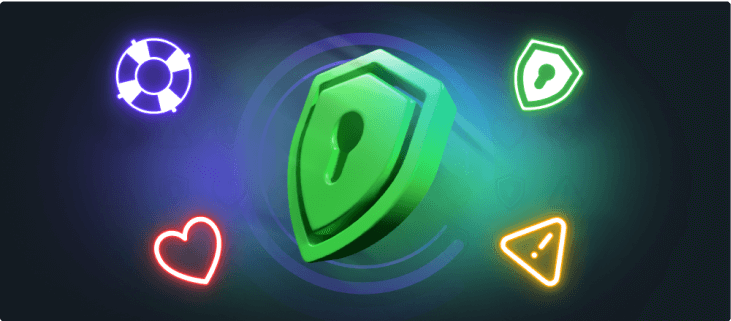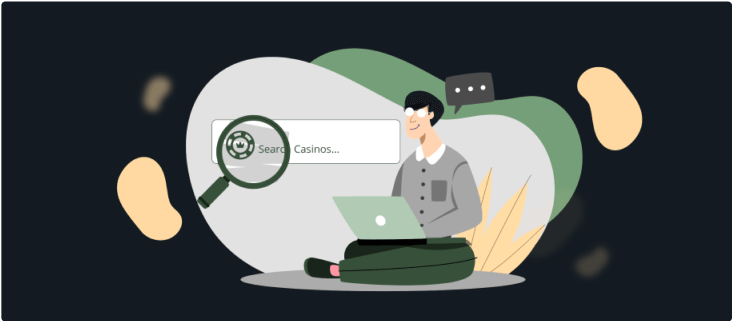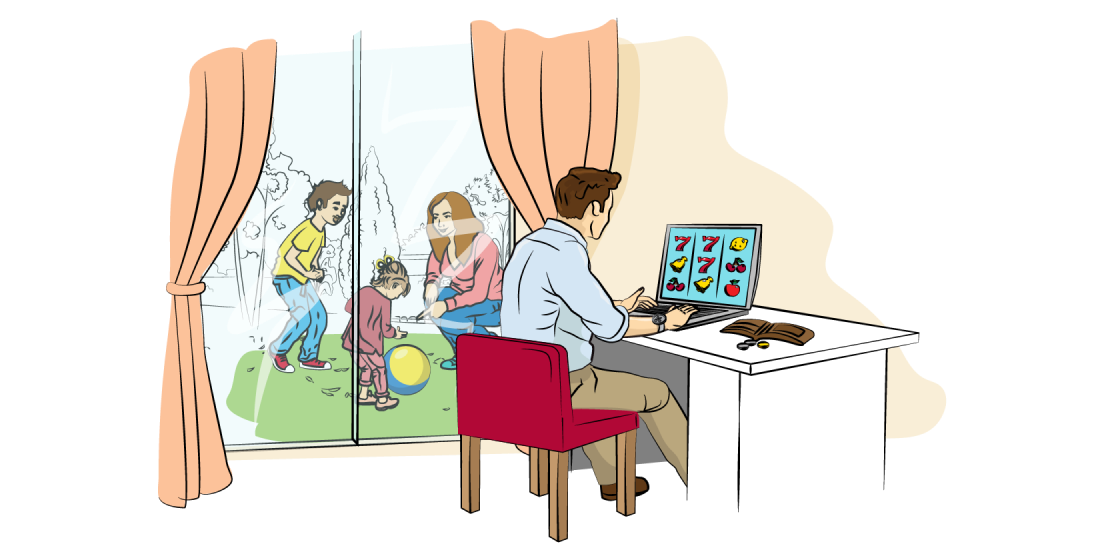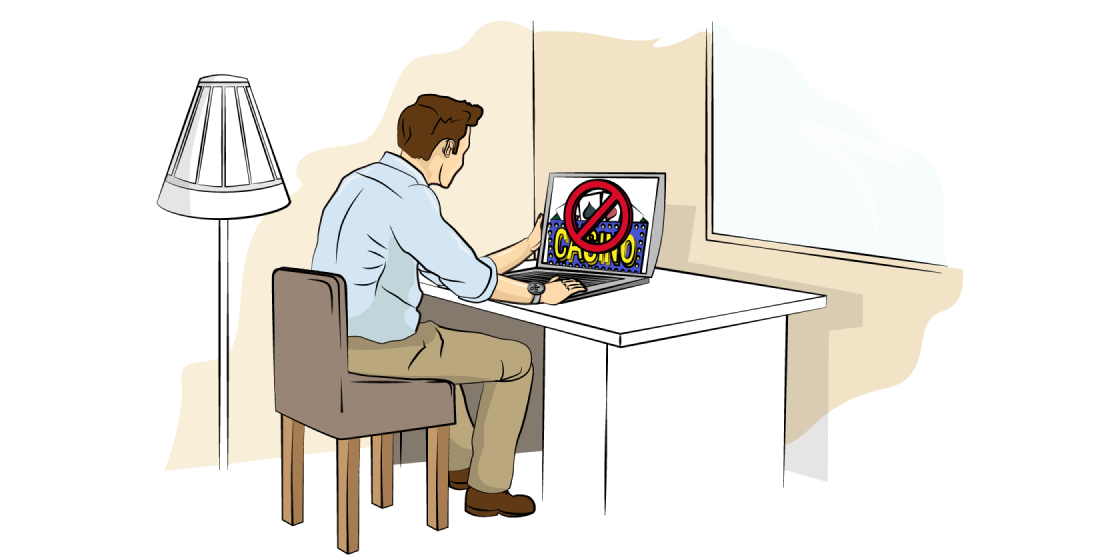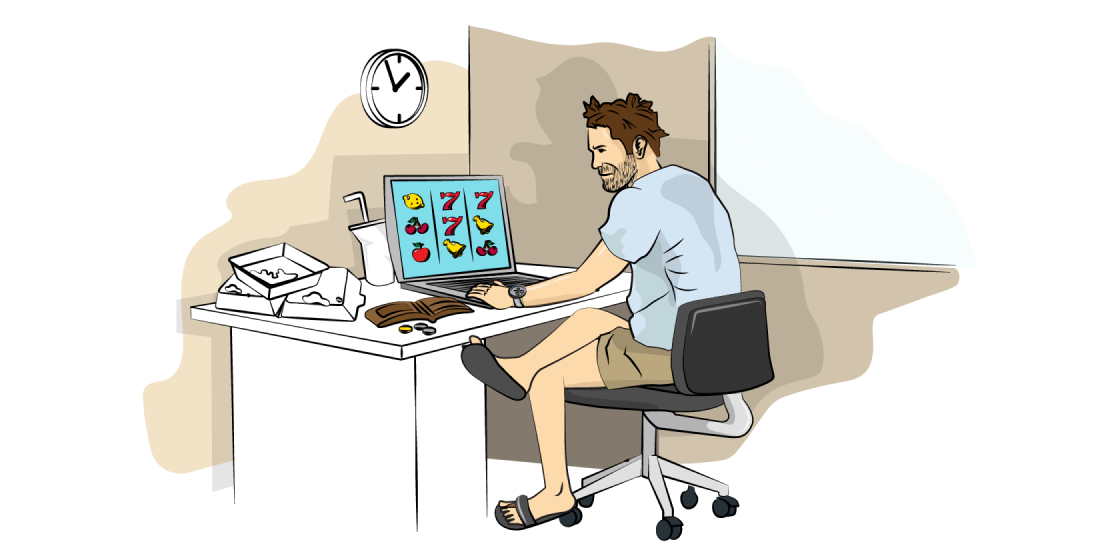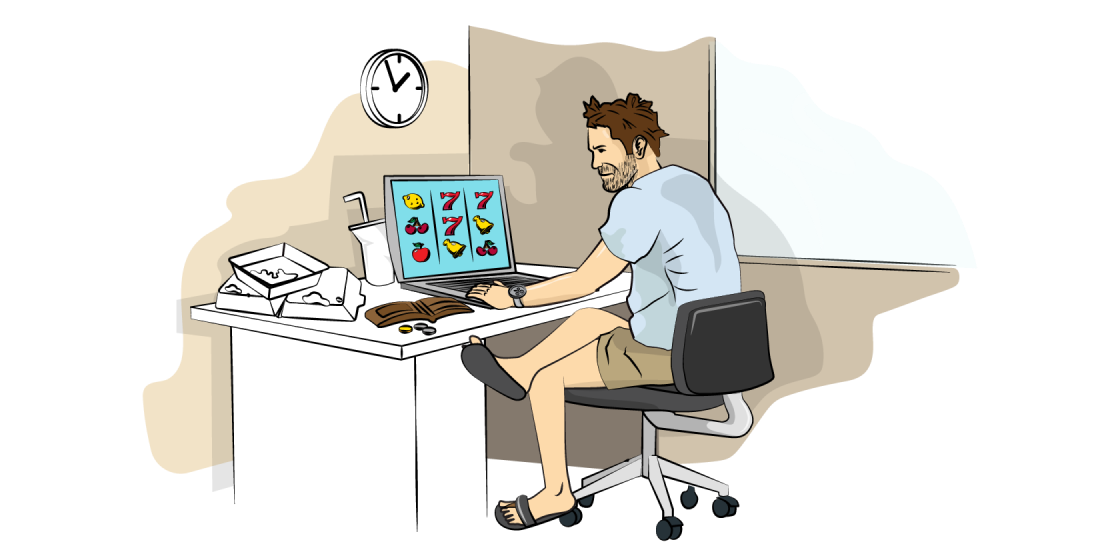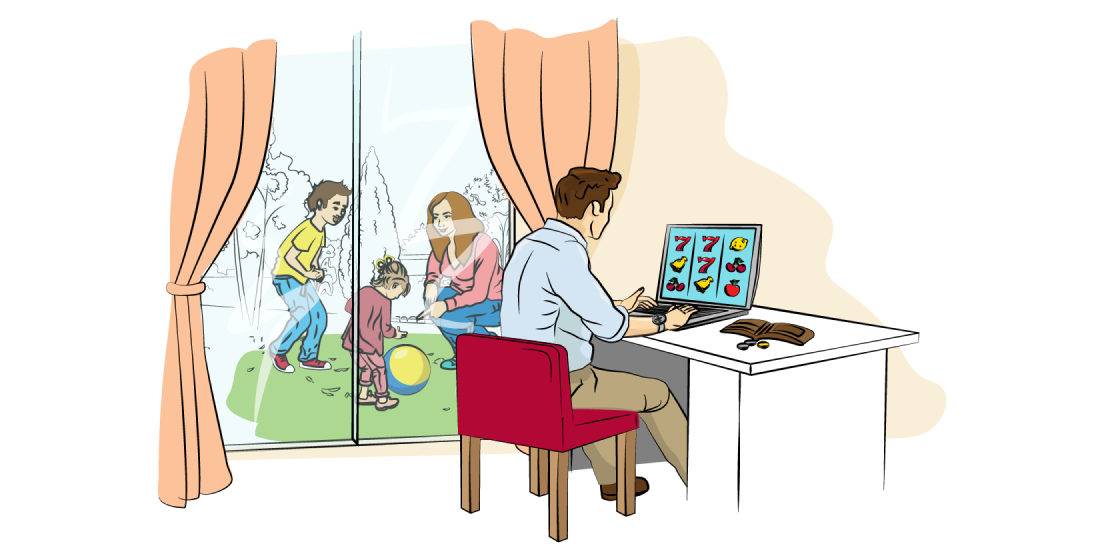How to Treat and Overcome Problem Gambling
Once gambling develops into a problem or addiction it may not be easy to overcome. It is possible to get over this addiction, however, as there are numerous methods that can help a gambler win their battle against problem gambling, pathological gambling, gambling disorder or gambling addiction.
If you feel like your gambling habits have become a problem, we advise you to read this article and reach out for support to try to change your relationship with gambling.
This article contains an overview of ways to deal with problem gambling, including:
- steps that you can take by yourself;
- ways to get help from your family, friends, or from other people who struggle with gambling;
- possible sources of professional help, and how they can help you.
Table of contents:
- Acknowledging the problem
- The process of overcoming problem gambling
- Dealing with it yourself
- Support from family and friends
- Help lines and live chat services
- Support groups
- Psychotherapy, counseling and professional help
- Gambling rehab and residential treatment programs
- Where to look for help
Acknowledging the problem
When you want to resolve an issue, it’s absolutely crucial that you first accept that you have a problem and that you need to do something about it. Without this first "step", your chances of freeing yourself from the control that gambling has over your life is virtually impossible.
It sounds pretty obvious, doesn’t it? If you don’t acknowledge there is something wrong, and don’t really want to change it, how can you hope to do something about it?
Even though the reasoning behind this step is obvious, it often proves to be one of the most difficult parts of overcoming a gambling problem or addiction. Problem gambling, especially in its more advanced forms, can feel like an extremely hard enemy to beat. It can have tremendous control over you and your mind, making you think everything is completely out of your control.
If you are aware of the fact that gambling has grown to be more than just a form of entertainment for you, and you would like to regain control over your life, you are on the right track. There’s still a long way to go, though.
And if you think (or even slightly suspect) that something about your gambling habits might be of concern, we strongly advise you to read our article on diagnosis of problem gambling. If you even slightly suspect that you might have a gambling problem, it is likely that something needs to change. It is definitely better to be safe than sorry.
The process of overcoming problem gambling
It might be difficult to imagine what the entire process of successfully overcoming a gambling problem looks like. This is why we have decided to include two "models" that might help you visualize the process and better prepare yourself for the journey:
Three stages of problem gambling recovery
Robert L. Custer, M.D., a psychiatrist who pioneered modern treatment for pathological and problem gambling, outlined a model containing three stages of compulsive gambling, and three stages of recovery. A couple of decades have passed since these stages were first described, and the gambling industry has evolved greatly since then, but the core principles remain the same.
The three stages of compulsive gambling are as follows: the winning stage, the losing stage, and the desperation stage. After going through these stages, a person basically hits the bottom. This stage is characterized by hopelessness, withdrawal symptoms, and emotional breakdowns. Arrests for crimes committed to obtain money for gambling may also occur, in addition to alcohol or drug abuse. Suicidal thoughts are pretty common, too.
This could be your situation right now, unable to see a way out. But it is important not to lose hope and start your journey towards recovery. Let’s take a look at the three stages of problem gambling recovery – the critical stage, rebuild stage, and growth stage.
1. Critical stage
In the critical stage, you start thinking about what you have been doing and what you have already done, at a critical level. You realize what has happened and start taking responsibility for your actions. You stop gambling and start thinking clearly, and the urge to gamble no longer influences everything you do.
You analyze your finances and start figuring out what to do. The chances are that your gambling addiction has gotten you into a bad financial situation, and this stage is where you start making plans to repay your debts and financially get back on track.
Essentially, the critical stage is where you start rebuilding your gambling-free life.
2. Rebuild stage
The first stage begins with rebuilding your life, but there is still quite a long way to go. The rebuild stage is about continuing this rebuilding process, and actually rebuilding your life. This process usually requires improvement in multiple areas, including personal growth, improving relationships and rebuilding your finances.
In terms of finances, it is necessary to stick to the aforementioned debt repayment process while also focusing on the payment of your current bills. Additionally, you should also do everything in your power to resolve any legal issues that might have emerged because of your gambling habits.
You can then accept yourself for who you really are, including your strengths and weaknesses. You gain back your self-respect, get less impatient, and are less irritable. You take up new activities, gain new interests and create goals for the future.
You start spending more and more time with your family and friends, and work on improving your relationships with your family, friends, spouse and everyone who is important to you. These people will slowly start to trust you again, and your relationships will get better and better.
3. Growth stage
After you have rebuilt your life, this is a great opportunity to grow even further, become a better version of yourself and discover a new (better) way of life. This is the growth stage.
You stop thinking about gambling and are able to deal with anything that life throws at you. You are able to face problems and deal with them, without the influences that gambling had on your behavior.
You are able to sacrifice yourself for others and give affection and attention to the people around you. In addition to this, the experience of overcoming a gambling addiction provides you with great personal insight. You start to understand yourself and other people better than before, which makes you even stronger in your new life free from gambling.
Wheel of change
While the three stages of problem gambling described above are great tools for visualizing the recovery process, they’re not ideal for acknowledging potential lapses and relapses, which are pretty common even during a period of a sustained recovery.
The Transtheoretical Model, outlining multiple stages of change, was developed in the late 1970s by studying the experiences of smokers who were dealing with their own addictions. This model operates on the assumption that people make continuous changes to their habitual behavior during a cyclical process, instead of doing so quickly and decisively.
According to this model, there are six stages of change:
- Precontemplation – During this stage people are not aware that their behavior is problematic or could produce negative consequences. They have no intention of taking action in the foreseeable future (defined as the next 6 months), and often underestimate the positives of changing their behavior, as well as overestimating the negatives.
- Contemplation – During this stage people intend to start behaving in a healthier way or abstain from unhealthy behavior in the foreseeable future. They recognize that their behavior may be problematic, while starting to consider the pros and cons of making a change in a more thoughtful and practical manner. That being said, these people may still be unsure whether they really want to make a change or not.
- Determination – During this stage (also known as the Preparation stage), people are ready to take action within the next 30 days. They start by taking small steps towards their desired change and believe that making a change can lead to a healthier lifestyle.
- Action – In the "action" stage, people have made a recent change, and plan to keep on moving forward. This might be evident through changes to the problematic behavior, or by acquiring new healthy types of behavior.
- Maintenance – In this stage, people have managed to sustain their newly modified behavior for a period of time (defined as more than 6 months) and intend to maintain it in the future. They work hard to prevent any relapses, and don’t wish to go back to their previously unhealthy behavior.
- Termination – In this stage, people have no desire to return to their unhealthy behavior and are confident they will not relapse. This stage is only achieved on extremely rare occasions, however. Most people remain in the maintenance stage, which is why the termination stage is very rarely achieved.
Although lapses and relapses are only mentioned in the Maintenance stage above, they can still occur at any time. Although these relapses can cause a delay on the journey to recovery, it is very important not to lose hope, but to keep on moving forward.
Although the two models mentioned above have certain limitations and are not perfect, they are able to provide you with the necessary stance to win your battle. Let’s take a look at how you can do this.
Dealing with it yourself
You might be able to overcome gambling addiction by yourself without seeking any kind of help from relatives, friends, your partner or professionals. This might seem like the most desirable option, but it’s arguably the most difficult one.
It can be extremely difficult to tell somebody about your gambling problem. You might be frightened to share this piece of information about yourself with your loved ones, to tell them what you’ve done and what is wrong. Most people that struggle with gambling are scared to tell anyone, just like you might be right now. But this is the right thing to do and could be extremely beneficial for you and your recovery process.
The support of your friends, family, or partner can be the difference between a successful and unsuccessful recovery. But if you don’t tell them, they can’t help you unless they figure it out for themselves.
The other thing you can try to do is to open up to a professional, and look for help that way, or to seek help from other people that are going through (or went through) the same thing as you.
We will focus on all of these options later, but let’s now take a closer look at what you can do by yourself. The practices and tips mentioned in this section can help you overcome gambling addiction by yourself, but you can (and should) apply them even if you are not doing this alone.
1. Limit your access to gambling
Online casinos and bookmakers, just like some of the brick-and-mortar ones, offer various responsible gambling options that you might find helpful in this situation, such as:
- Self-exclusion options
- Deposit limits
- Bet size limits
In addition to these, there are also "global" blocking websites and tools that do their best to keep you from accessing any online casinos or websites that operate other forms of gambling. You can read more about the aforementioned tools in our article about responsible gambling options offered by online gambling providers.
It is certainly a good idea to use these tools, but you should also keep in mind that they will not help you overcome your problem gambling simply on their own merits. A person who really wishes to gamble will always find a way to get around tools and limitations, and still play.
Self-exclusion, deposit limits, blocking tools, and other tools will not help you to stop playing completely, but they will provide a barrier that might deter you from gambling whenever you feel the urge to gamble again. This might help you limit the negative impact of gambling on your life, but after the end of a self-exclusion period it is very easy to fall right back into the vicious cycle of gambling addiction. This is why it is important for you to focus on other aspects of overcoming problem gambling, instead of just relying on these tools to do it for you.
More extreme measures might be helpful in certain situations. You might want to consider getting rid of your computer, mobile phone or tablet, so that you really don’t have access to online gambling. Of course, it might not be possible to do this because of your lifestyle and profession, but definitely take it into consideration. It is also advisable to stop visiting bars, pubs and other establishments that offer gambling possibilities.
2. Find activities to replace gambling in your life
For many problem gamblers, gambling has become a very important part of their lives whether they realize it or not, and it’s quite likely that this is true for you as well. Whenever you feel bored, it’s very likely that gambling will be one of the first activities to flood your mind, making it harder to resist.
When fighting problem gambling, it’s important to fill your days with healthy activities that will keep you busy and stop gambling from constantly being on your mind. If you constantly have something to do, your chances of winning the battle with gambling addiction will be much higher.
Go for a walk, take up a new sport, start going to the gym, and start spending more time with your family and friends. Almost anything you can think of that could be helpful, with the exception of the factors we will focus on in the next section.
3. Be careful not to become addicted to something else
While battling addiction to gambling it’s very easy to get addicted to something else. Alcohol, drugs or other dangerous substances or activities might provide quick relief for your gambling cravings but will not help you get your life back together. These will only add to your issues and do the exact opposite of what you are trying to achieve.
Trying to overcome a gambling addiction is an extremely mentally demanding process, which makes you more susceptible to other addictions such as alcohol or drug related issues, which are much more likely to occur. Stay alert and do your best to find healthier things to do.
4. Understand that gambling is NOT a way to make money
Trying to win big and chasing your loses, is one of the main symptoms of gambling addiction. You are waiting for a big win and hoping to earn back the money already lost, and maybe add a bit more on top. But this "big break" never actually comes, and you only dig a deeper hole for yourself.
It is crucial to understand that gambling will NOT make you rich. Every casino game is set up in a way that favors the casino (or the "house"). The casino advantage is known as the "house edge", which you can read more about in our article on RTP and volatility. This is focused on casino games, but it also works in a similar way for sportsbetting, bingo, scratch cards, the lottery and other forms of gambling.
The house edge results in you losing a portion of every single bet that you place, making it impossible to be profitable over the long-term. Every game is configured differently, but they all have the same factor in common – you WILL eventually lose money if you keep on playing. Keep this in mind as it might help you to change the way you currently view gambling.
Winning money, or at least getting back what’s been lost, is most likely one of the reasons why you gamble. But as many professionals agree, the real reasons for gambling go much deeper than that, and when it comes to gambling addiction, it is often not about the money at all. It is about "feeding" the addiction, and money is the necessary ingredient to do so. Many problem gamblers don’t stop even when they win big, but keep on playing until they lose everything, or realize they have a huge problem, and then do something about it. The sooner you realize that gambling is not a way to make money, the better off you will be.
5. Learn to fight gambling cravings
When heavy smokers try to stop smoking, they continue to have strong cravings for cigarettes. It’s the same thing with gambling. It is almost guaranteed that you will get an urge to play slots, place another roulette bet, or bet on your sports team once again. But it is crucial that you try to resist.
How do you do this? There is no universal way of resisting the urge to gamble, but there are some things that might help:
- Postpone gambling – Whenever you feel like playing, do everything in your power to force yourself to wait for 10 minutes, or maybe an hour or a day before actually doing it. As time goes on, you might realize gambling is a mistake and stop yourself from doing it. Ideally, you need to postpone the urge forever, but this is the first step.
- Think about what happens when you gamble – It’s very likely that most of your previous gambling sessions have ended in a negative way. Try to visualize the way you usually feel after you lose everything, including how you feel about yourself and how other people may feel about you at this point. This is not a nice thought, but this is exactly the point.
- Keep yourself distracted by keeping in touch with other people and undertaking activities – We have mentioned this before, but it is important to keep yourself busy so that cravings arise less often. It is also very helpful to be around other people and not stay on your own, as other people can help to keep you distracted and provide you with necessary support. Get involved in sports, take up new hobbies, and try to spend as much time as possible with other people.
- Don’t be too hard on yourself – You might not be able to resist all of the cravings and may still gamble now and again. It is important you realize that this can happen to anyone. Don’t use this as an excuse to give up altogether just because it’s happened a single time. Learn from your mistakes, stay strong and keep fighting. This being said, it is also important not take this too lightly, but to realize that you’ve made a mistake. If it occurs more than once, it might be a good idea to look for professional help.
Everybody is different, however, so it’s difficult to tell what will, and will not, work for you. What is important is that you do everything in your power to resist the urge to play, with the above options being just some of the possibilities to help you in this situation.
In some instances, the urge to play might be linked to your personal environment. There are stories of people who have successfully beaten gambling addiction thanks to relocating to a different environment, through the subsequent change to their lives. This option is definitely not for everybody, but we thought it was still worth mentioning.
6. Try to recover your financial situation
It could be possible that gambling habits have resulted in the loss of your savings, or even caused you to get into debt. If this is true, you should implement measures to repay your debts and get back on the right financial track.
First of all, stop playing and stop losing any more money. As mentioned earlier, chasing losses is very harmful to your mental and financial health. Stop looking for an improbable "quick fix" and find a reasonable way to rebuild your finances.
This tends to be a long, difficult and tedious process, but it’s something that needs to be done for you to have a normal and happy life in the future. There are debt management organizations and charities that are ready to help you, as well as multiple organizations that focus on treating problem gambling, and which can help you manage your debt in a responsible manner.
7. Create a "Pocket friend" to carry with you at all times
This might seem like a silly tip, but this can really help you to stay on the right track, as well as deal with gambling related cravings. A "Pocket friend" refers to a small sheet of paper (or anything else you can write on) which contains two lists.
The first list should contain the benefits of living a gambling-free life, and not gambling. The second list should contain the negative effects that gambling has, and has had, on your life. Think about it for a couple of minutes, and you should be able to come up with at least three or four strong and impactful items for each list.
Anytime you feel like gambling, walk by a land-based casino or a bar with slot machines in it, or open a web browser to access an online casino website, then take out your pocket friend and read it.
The reasons for staying gambling-free, and the reasons against continuing to gamble, should be personal and specifically pertain to you. Otherwise they will not work to their fullest potential. Think about what gambling does to you, and what positive things could happen if you stay away from it, and then write these thoughts down.
You can find some inspiration in the table below. These phrases are written in the first person, as they symbolize you speaking to yourself through the "Pocket friend".
| The benefits of living without gambling | The negatives of continuing to gamble |
|---|---|
|
|
8. Consider the options in the rest of this article
The tips mentioned above can be extremely helpful, but as already mentioned, it is very difficult to fight gambling addiction on your own.
If you are trying to win this battle by yourself but keep failing, maybe it’s time to consider other options such as reaching out to your family and friends, looking for support from other people who are battling against gambling addiction, or seeking professional help. We will focus more on these options below.
Support from family and friends
When a person really struggles with gambling, their family members, friends, colleagues and the people around them will most likely be affected too. However, these people can also really help with overcoming problem gambling.
Try to spend as much time with your family and inner circle of friends and colleagues as possible. It will help you strengthen any relationships that might have been affected by your gambling habits, and inter-personal activities will distract you from thinking about gambling.
It is important to start rebuilding your relationships as soon as possible because there might not be anything to rebuild once it’s too late. It is very hard to gain back lost trust, but if you really want to get your life back together, your family will most likely understand and support you.
Support from family and friends can be amazingly helpful, but in most cases, they don’t actually know what it’s like to struggle with gambling. This is why it might be better to look for professional help or reach out to people with experience with gambling-related issues.
There are also sources of help for problem gamblers and their families, such as family support groups and other types of family therapy which, in addition to helping you directly, could also help your family members understand your struggles and give them instructions on how to help you with your treatment process.
Help lines and live chat services
Multiple help lines and live chat services are now available if you would like to discuss your gambling problem with an experienced person from the privacy of your home. These help lines are extremely useful as they provide immediate help, as well as being available whenever you feel weak, need help, or just want to talk to someone about your issues.
The availability of these services may vary depending on where you live. We have put together a database of help lines and live chat services that could be useful, depending on your location. Talking to people who are experienced in dealing with problem gamblers, and who know the struggle you are battling against, could be extremely beneficial for your recovery. Not only that, but these help lines and chat services are generally free, so there is every reason to use them.
Support groups
Talking to other people who are going through the same experiences as you, or have already won their battle against gambling addiction, can help you realize that you are not alone in this matter, and that other people also exist who struggle with problem gambling. These people understand what’s going through your head and how difficult it can be to overcome gambling addiction. Finding someone who really understands can (and will) help you.
What’s more, you will be talking to people that have already managed to win their battle with problem gambling. Allow them to share what has helped them, with you. These people have already managed to do what you are now trying to achieve. And if they managed to do it, why can’t you?
You might feel hopeless right now, believing that your struggle with gambling will never get any better. Talking to people who have also gone through this process, and managed to get better, can help you realize that the battle CAN be won, which improves your mindset and gives you hope for a better future.
The most notable group of people who organize gambling-related support groups are called Gamblers Anonymous (GA). They organize regular meetings in many US cities, in addition to many other countries all around the world. Depending on where you live, you can find the closest meeting right here: US meetings and international meetings. The links above lead to an international GA website. You can find links to local GA websites in our database of problem gambling help centers.
If Gamblers Anonymous do not currently organize meetings in your country of residence, or close to where you live, there might be other support groups available through other organizations, or which operate on an independent basis. Should you be unable to find anything suitable, there are many other forms of help you can get.
Alternatively, there are also online support groups, such as those organized by Gambling Therapy. These are an amazing alternative, as they are available pretty much to anyone with an Internet connection. There are various types of groups, so you will definitely be able to find something that’s suitable for you, and receive help and support in this way.
Gambling Therapy also operates forums dedicated to helping people overcome gambling addiction, or other problems related to gambling. If you are looking for a helping hand in the online world, forums such as these can assist you, by connecting you to people who understand what you are going through.
Psychotherapy, counseling and professional help
Psychotherapy, also known as individual therapy or counseling, is a process in which a person talks to a therapist with the aim of solving a problem, improving their quality of life, developing relationships, etc. The goals of psychotherapy can vary from case to case, but in the specific instance of problem gambling, these goals are pretty obvious.
Individual therapy can help you solve issues, overcome obstacles, gain new perspectives, or reach other goals that would be more difficult (or impossible) to reach by yourself. Talking to a professional who is experienced in handling these types of difficult situations can really help you:
- to better understand the negative effects of gambling on your life, and the lives of the people around you;
- to control your urges to gamble;
- to realize and accept that gambling has gotten out of control;
- to discover the real reason behind your gambling issues, and discover how to solve them;
- to win your battle against problem gambling.
There are many different types of psychotherapy, with Cognitive Behavioral Therapy (CBT) being the one most widely used for gambling-related problems. CBT focuses on discovering relationships between thoughts, feelings, beliefs, attitudes and behavior, as well as challenging and fixing them if they appear to have unhelpful or negative effects. This can help to change the way you think about gambling, analyze the thought process that has led to problem gambling, control the emotions you feel in relation to it, resist urges to gamble, cope with issues you are currently facing, and hopefully fix them over time.
For example, many problem gamblers believe that they will eventually manage to break their "bad luck", win big and get back everything they have lost. This is a very unhealthy thought which has led to many people losing everything they have. A psychological professional can help you address this thought process and hopefully get rid of it once and for all, assuming you are unable to understand it by yourself.
Furthermore, problem gambling is often caused or triggered by an underlying issue that you might not be aware of. People often gamble to get away from something else that’s on their mind or happening in their life. A discussion with a professional can help you discover the real cause behind your gambling issues and find a way to stop playing.
Apart from CBT, exposure therapy can be helpful as well. This form of therapy most commonly deals with fears by opening up and becoming exposed to them but can also be beneficial in relation to problem gambling as well. It can work by envisioning what happens after gambling, analyzing how you feel after losing money, and by generally understanding and experiencing how much of a negative impact gambling has had on your life. It can be an emotionally painful process, but it is definitely worth doing if it helps.
Gambling rehab and residential treatment programs
If nothing seems to help, there is always the option to go into rehab or take part in a residential treatment program. These are most commonly aimed at the most severe cases of gambling addiction, in which 24/7 support, care and attention is required.
Access to gambling is limited at these facilities, enabling you to focus on healing and move away from the temptation to gamble. Apart from this, you will also get full attention from professionals who are specialized in helping people like you overcome their gambling problems.
At gambling rehab, you will spend time with other people who also struggle with gambling, which can give you further insight into how other people deal with this issue. Most gambling rehab environments also have support groups, giving you an opportunity to share your story, listen to other people’s stories, and learn something new.
If it’s too difficult to get away from gambling due to your daily life and environment, a residential treatment program might be a good option for you. The change of environment, support from professionals, and limited access to gambling could be beneficial even in cases where nothing else has worked.
Where to look for help
As you can see, there are a number of ways you can get help in your fight against gambling addiction. Your options might be limited due to where you live, but because problem gambling is a widespread issue that influences the lives of millions of people, it’s safe to say that you WILL be able to find at least some options suitable for you.
Sometimes it might be difficult to get support from others who also battle against problem gambling, or find professional help, so we have decided to create a database of help lines, live chat services, support groups, rehab environments and other ways that can hopefully help you. Use this link to find available help in your language, country or area.
Conclusion
Problem gambling, pathological gambling, gambling disorder, gambling addiction. It has many names, but one thing remains the same – it is a difficult enemy to beat.
You can try to do this by yourself through the use of the self-help tips listed in this article, but should you need further assistance, don’t hesitate to look for professional help or support from your family and friends.
Either way, simply by getting to the end of this article, it’s likely you are now on the right track to making an important change in your life. You might have a long journey in front of you, but with the right approach, and suitable support, you can beat gambling addiction and start living a gambling-free life.
